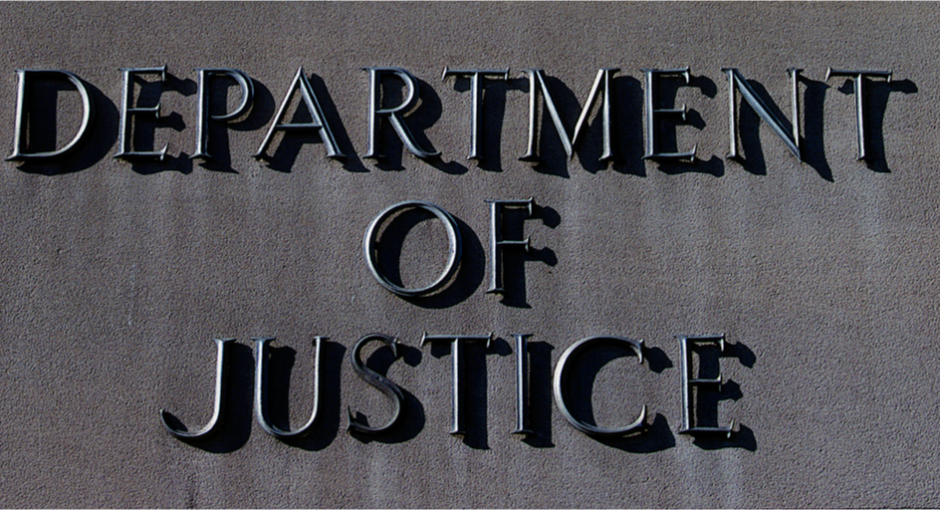Letting drug manufacturers put conditions on 340B drug discounts “would be akin to letting the fox guard the henhouse,” the U.S. Justice Department (DOJ) told federal appeals courts in Philadelphia and Washington, D.C., last night in a pair of filings in consolidated lawsuits over the government’s 340B contract pharmacy requirements.
“The bottom-line requirement is straightforward: if drug manufacturers want to be reimbursed for their drugs by the federally funded Medicaid and Medicare Part B programs, they also must sell their drugs to covered entities at a discounted price,” the government said in both legal briefs. “Drug manufacturers cannot add provisos to that straightforward statutory requirement.”
Dual Deadlines Yesterday
DOJ had dual May 9 deadlines to file opening briefs in a pair of consolidated cases: Novo Nordisk and Sanofi’s lawsuits against the U.S. Health and Human Services Department (HHS) and Health Resources and Services Administration (HRSA), and Novartis and United Therapeutics’ lawsuits against HHS and HRSA. Novo Nordisk and Sanofi’s consolidated cases are before the U.S. Third Circuit Court of Appeals in Philadelphia and Novartis and United Therapeutics’ cases are before the U.S. Court of Appeals for the District of Columbia.
The government’s brief in Novo Nordisk and Sanofi’s cases and its brief in Novartis and United Therapeutics’ cases are mostly the same, one adapted to address Novo Nordisk and Sanofi’s contract pharmacy policies and the other to Novartis and United Therapeutics’ policies.
“Congress created the 340B program to ensure that covered entities could obtain discounted drugs under the conditions that Congress established,” DOJ said in both briefs. It said Congress knew when it enacted 340B in 1992 that most covered entities dispensed their drugs to patients through outside pharmacies and it “chose not to restrict covered entities’ use of contract pharmacies or allow drug manufacturers to impose … restrictions unilaterally.” Nor did it authorize HHS to impose such restrictions, it said.
Manufacturers that have restricted 340B pricing when entities use contract pharmacies claim that their objective is to prevent duplicate discounts and drug diversion to ineligible patients, DOJ said. “Congress specifically addressed those concerns through calibrated program-integrity provisions,” it said, and it did not let drug manufacturers “augment these carefully crafted provisions with policies that undermine the ability of covered entities to provide patients with 340B drugs through their contract pharmacies.”
Under the drug manufacturers’ logic, “a drug manufacturer could offer their drugs to covered entities at the discounted price—but only if the covered entity agreed to purchase the manufacturer’s drugs whenever possible, and never a competitor’s,” DOJ said.
“There is nothing in the 340B statute that explicitly prohibits such a unilateral condition,” the government said. “But the fact that Congress did not directly bar such a self-serving business practice does not mean that Congress permitted it.”
The proliferation of drug manufacturer conditions on 340B pricing involving contract pharmacy has created “a web of restrictive manufacturer conditions simply to obtain the discounted drug price that Congress enacted the 340B program to provide them.”
The burden imposed by such conditions “increases costs for covered entities, diverts their time away from medical care, and seriously harms their patients,” DOJ said. “The result is billions’ worth of savings lost, and people’s health put in jeopardy. Accordingly, HHS properly informed the manufacturers that their new policies violate the statutory scheme and must end.”
Next Steps
Novo Nordisk and Sanofi filed their opening briefs in their case in March. They too are appealing portions of a lower court’s November 2021 decision. DOJ’s filing yesterday comprised both its opening brief and its response to Novo Nordisk and Sanofi’s briefs. The companies’ deadline for their reply to DOJ’s filing yesterday is June 8.
Novartis and United Therapeutics are not challenging a lower court’s November 2021 ruling in their cases. Their responses to DOJ’s brief yesterday are due on June 8. DOJ gets the final word in a brief due on July 27.
AstraZeneca Lawsuit Development
Last week, The Third Circuit Court consolidated AstraZeneca’s 340B contract pharmacy lawsuit with Novo Nordisk and Sanofi’s cases. Yesterday, the appeals court released the schedule for briefs in that case. The government’s opening brief is due on June 21. AstraZeneca’s response brief is due no later than July 21, and the government’s reply brief on Aug. 11.
Lilly Lawsuit
Drug manufacturer Lilly’s opening brief in its appeal of a federal district court’s decision in its contract pharmacy lawsuit is due by May 25. The government’s opening in its cross-appeal of the decision is due by June 24. Lilly’s reply to the government is due July 25 and the government’s reply to Lilly by Aug. 15.


